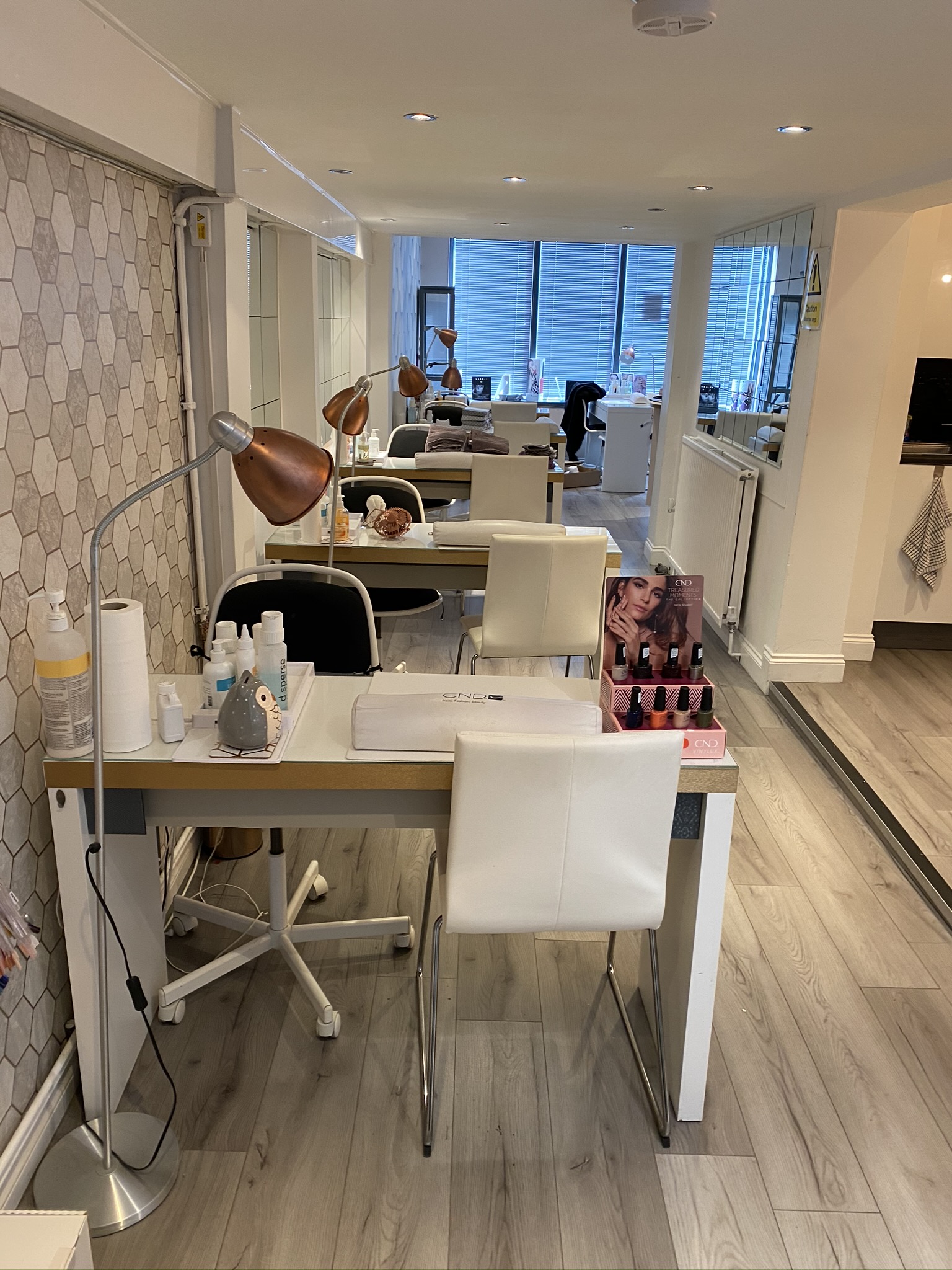Everything you need to know about setting up a beauty salon

Owning a salon is a dream for many beauty therapists, but what does it actually take and how do you know where to begin?
There are so many factors and logistics to consider, however we spoke to industry experts and salon owners who set up their own successfully, to give some insight about what it’s really like.
What does it cost to open a salon?
When opening a beauty business, it’s important to consider the different options that are available: you can work from home, rent space in an existing building, takeover an existing salon, go mobile, or rent or purchase a standalone unit.
Salon business expert Liz McKeon says numerous factors such as finance and practicality will help determine which route is best for you. “The business model you decide on may depend on how much money you have to invest in your new business. For example, the cost of starting a mobile or home-based business is far less than investing in a standalone unit,” she says.
When considering budget, Liza Smith, beauty business coach and owner of Bodylines salon in Kent, advises, “If your start-up is in your house or a small, rented area with very little adjustment needed, your budget could be as low as £5,000. However, if your chosen premises needs major works like a re-wire or new heating, then your budget will be nearer £20,000.”
Before signing on the dotted line, here are eight things you need to know about salon leases.

Liza Smith, beauty business coach and owner of Bodylines salon in Kent
Where to go for advice
McKeon says to make sure to seek out professional advice before making any big decisions. “Allocate a budget to your professional advice team, such as a solicitor, accountant, insurance broker, mentor and local business advice centre. With their advice and direction, set your business up as a professional well-run entity from day one.”
Karen Thompson, owner of Sussex-based salon group Beauty Secrets, which has just opened its fourth site, says that when opening a salon, having a clear “to do” list is great to track progress. “We would literally tick things off as we went and watch them go from red to green, which was really satisfying and helps you know where you’re at.”
Salon business expert Liz McKeon
Seek out financial support
When it comes to financial support, Thompson says that it’s out there, you just have to go looking for it. The Department for Business, Energy & Industrial Strategy is the department needed when looking for support on the Government website.
“Contact your local council and ask to be put in touch with any free business support; there is lots out there so go straight to the Government and the local authority,” adds Smith.
Georgia Clarke, owner of the recently opened Kalon Parlour in London, says that there are other finanical options to consider alongside government support. "Of course, government backed grants are recommended, but there are also crowdfunding options from crowdfunding platforms that a lot of people do not consider. Or, consider asking family and friends if they would like to invest for a slice of equity."

Karen Thompson, owner of Sussex-based salon group Beauty Secrets
Insurance is a must
Professional indemnity (public liability) insurance is a legal requirement in the industry. “Most salon packages will also cover you for product indemnity as well as fire, theft and loss of earnings cover,” says Smith.
When it comes to home salons, Karen Hitchen, who owns home-based salon Haven House in Halifax, says that the same type of insurance applies, however you will need to check with your home insurance policy regarding working from home.
Don’t compare prices with competitors
“The biggest mistake that I am seeing at the moment is professionals asking other professionals what they charge for x,y or z,” says Smith. “Everyone’s prices are dependent on how much it costs them to deliver that service and how much they want to earn from it. No two businesses are going to have the same desired results or costs.”
Read more advice on how to set the right prices for your treatments.
Weigh up marketing and rent
“If you are starting from scratch with little-to-no client base, you need to either be in a great location, near to shop, parking and passing trade, or you need to do a lot of marketing,” says Smith. “Both options can be expensive, but you are likely to have more time than money, so cheaper rent with lots of time and energy spent on marketing may well be a smart move.”
She also emphasises that it’s important to consider what your ideal client will need from the surroundings. Will they need to drive to you? If so, then parking is crucial. If you’re going for local workers, then parking shouldn’t be so high on the list.

Bodylines salon in Kent
Consider who you want to employ
When setting up a salon, you need to think about who you’re employing. Will it just be you? Or will you employ a team? Smith says that thinking ahead to what you hope the future of your salon might look like will help determine this.
“Do you want to eventually work less but earn the same, or are you prepared to put aside a chunk of your self-employed earnings to cover a pension and an emergency fund?”, she asks.
If you want a team, a safe way to do it is by growing it slowly. “You can grow your own team slowly by taking on apprentices and as they qualify, take on another,” adds Smith.
Clarke also emphaisises that starting off with a smaller team is a good way to go. "At the start I bulk hired a big team as the plan was to become busy eventually. But this meant there was a lot of spare time for some of them whilst their colleagues were busier in comparison. As we offer so many services, we only needed a few employees who could do more than one service very well and were also client focused," she says.
Do market research to find out what clients want
Carrying out research when opening a new salon is a great way to find out what potential clients want and what they don’t. “I did local market research through social media and was aware of my target area. I found that beauty and spa in my area was quite ‘traditional’ and tended to offer similar treatments,” says Hitchen. “I like to be different, stand out and follow my truth so I created several different seasonal therapies to help keep my menu fresh.”
Karen Hitchen, owner of home-based salon Haven House in Halifax
Visit other salons
Market research that many might forget is going out and visiting other local salons to see what is out there. Clarke says that this is a great way of finding out what works and what doesn't. "Once you have decided your USP, visit spas and salons during your market research to see what is actually out there, what they are offering and also try them out yourself. You may have to spend a lot, but the insight will be invaluable as it is harder to sell something that you haven't tried yourself. We did not want to offer treatments that potential clients could walk across the street and receive, but also did not want to offer a service that doesn't have a demand. It's important to find the balance between the two," she says.
Confide in friends and family
Setting up a new salon can take a huge emotional toll, so Smith says it’s crucial to have a good support system around you. “The biggest asset a new salon owner can possess is a supportive family and friend base, this will make or break your success.”
As well as confiding in friends and family, it can also be helpful to speak to other salon owners about what the process is like. “Speak to other salon owners that you admire, people that have been in business for more than five years. Get a good view of the journey you are about to take,” says Smith.
Be flexible
The process of setting up a salon can often be unpredictable and Clarke says that being flexible is a must. "It is easy to become fixated on the specific timeframe and launch date you have given yourself, that it can make the journey less enjoyable. It is important to manage your own expectations as you go along, to prepare yourself for any eventuality. We pushed our launch date back at least four times, I had to learn to let everything be to avoid overstressing myself. Only then was I able to enjoy the journey for what it was. Now looking back, a lot of the setbacks were blessings in disguise."
Thompson also agrees that a flexible approach is best and that you should always overestimate how long and how expensive the process will be. "It helps to have extra time built into your initial plan and the cost will almost always come out as more, so it's good to prepare for this," she says.




